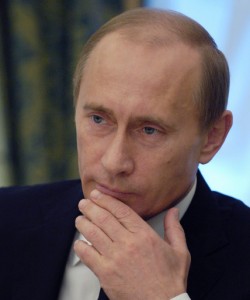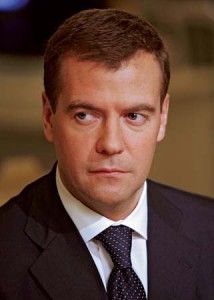The United States is about to go into that season of political discourse and verbal combat known as the presidential election process. It seems the previous election is barely over and the next crop of presidential wannabes start lining up and creating distinction between themselves and the person in power. The process has produced coronations, like the second term elections of President Nixon and Reagan, surprise political savants appearing out of nowhere like Presidents Carter, Clinton, and Obama, politicians thrust into the role like Truman and Johnson, and can’t miss politicians that missed, like Senators Muskie, Glenn, and Teddy Kennedy. The journey to the election, no matter how unsatisfying the result, is a grinding battle that takes place in the harsh spotlight of an intense press, the need for voluminous sums of investors, and the capacity to weather rhetorical storms.
In an important article in the National Review, Paul Gregory gives definitive insight to a much different presidential process, the byzantine, behind the scene struggles of the men who would lead Russia.  The election of 2012 is rapidly approaching, and unlike the American version, the battle to determine the winner will take long before the official vote. The epic battle brewing between the former president and current prime minister Vladimir Putin, and the man he chose to replace him, Dmitry Medvedev,
The election of 2012 is rapidly approaching, and unlike the American version, the battle to determine the winner will take long before the official vote. The epic battle brewing between the former president and current prime minister Vladimir Putin, and the man he chose to replace him, Dmitry Medvedev, is every bit as compelling as the American version, though much of the contest will be shielded from the public eye.
is every bit as compelling as the American version, though much of the contest will be shielded from the public eye.
Democracy in the Russian Federation is an evolving concept with no deep historical roots. 400 years of totalitarian Tsarist rule of the Russian empire was disturbed only by the brief blip of the Russian Provisional Government that wobbled out of the upheaval known as the 1917 Russian Revolution, comulnating in the overthrow of czar Nicholas II. The country barely looked up to see the czar gone, only to be thrust back into civil conflict and the rise of the communists, with 70 years of totalitarian oppression by communist overloads and demigods like Lenin and Stalin, and a whole host of other unsavory politicos. The final nail in the totalitarian coffin was driven by the shaky leadership of Mikael Gorbachev, whose glasnost (openness) and perestroika (restructuring) concepts to evolve a more humane communism only hastened its collapse by exposure of its fundamental failings, hypocrisies, and conceits. The whole Potemkin village edifice of a functioning superpower economy came crashing down in 1989 with loss of the vassal states of eastern Europe, and the 1991 collapse of the Soviet Union itself.
The first direct election for a President in history in 1991, brought a reform minded ex-communist to power, Boriis Yeltsin, who presided the next 8 years over a wild west atmosphere in Russia complete with “shock therapy” capitalism, oligarchy formation of major Russian industries, rampant economic strain, and nasty, bitter regional conflicts such as Chechnya, in provinces that did not achieve separation when the Soviet Union dissolved. Fragile political parties developed in this period stood no chance surviving the upheaval and the population craved the steadier times provided by autocratic rule. Yeltsin was replaced by Vladimir Putin, and the conversion of the early seedlings of healthy democracy, a vigorous press, multiple parties, and an independent judiciary, were rapidly silenced. Stabilization of the Russian economy through weak currency and strong oil exports have rebuilt the Russian veneer of a strong stable central government, but the price has been steep with Putin permitting increasing corruption among supporters, devastating attacks on opponents, and heavy handed governmental tactics that remind many of the closed economy and political apparatchiks of earlier times. With Putin’s two terms completed in 2008 and his desire to maintain the appearance of respecting the Russian constitution while maintaining power, he appointed himself prime minister and positioned Dmitry Medvedev, a technocrat, to succeed him as President. I suspect the plan was Medvedev to play caretaker until Putin was free to resume the presidency after the necessary interval of four years.
The best laid plans often fail to predict all contigencies, and Putin clearly failed to see how Dmitry Medvedev would grow into the role of president. He has proven himself competent on the international stage, more engaging then the brutish Putin with other leaders, and inherently more trustworthy. Surprisingly, his calm, rational demeanor has proven a modern alternative to Putin’s egocentric superman persona, and the russians are beginning to view him as a compelling alternative to the godfather approach of Putin. As Paul Gregory points out in his terrific article, the secret in Russia is to pick the winner correctly if one wants to prosper, and a surprising number of Russian politicos are hedging their bets. What will occur over the next year is anybody’s guess, but it is not difficult to see the continuing split personality of the Russia that wants to be modern, and the Russia that wants to be dominant. Time will tell if the country with its endless resources, will finally grasp its potential and take advantage of its diverse capacities. Putin vs Medvedev, is a heavyweight fight for the future of Russia. The best Presidential debate with the most impact on the battle of free will versus security, may yet be fought in 2012 on a foreign shore.

Netanyahu: Leader of the free world!!! Is there anyone out there who will tell it like it is without fear of annoying the anti liberty forces of the world.